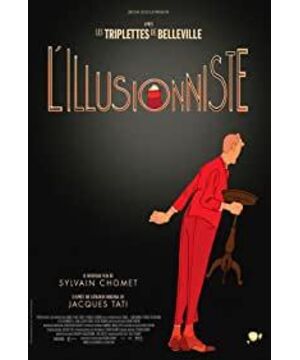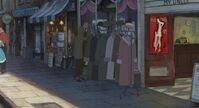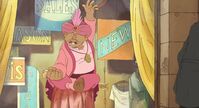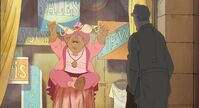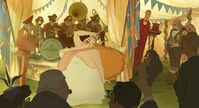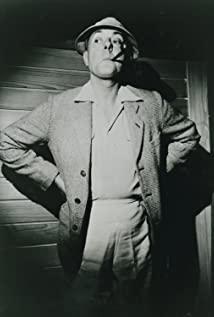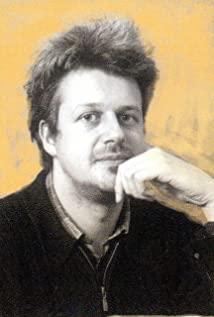The Magician is another absolutely lonely story. I don't know why, but I think the use of animation to express emotions is sometimes more delicate than live-action movies, and animation has a quietness and lightness in it. For example, when watching an animation, when you see a person's lonely back, you are looking at the outline of the back, and you will not notice that the person's socks are exposed inappropriately like watching a live-action film. Animation is a purified life. I always remember a scene in the animation that moved me very much. It was watching "How to Train Your Dragon" in the cinema. The boy touched the dragon's nose lightly for the first time. It was very quiet. The whole theater was so quiet. good. Soft and beautiful. The same is true of "The Magician". After watching it, I feel sad and feel that the pictures in my eyes are beautiful. I don’t know how to classify animation styles. I define animations like “The Magician” as “realistic” animations, that is, the sets and props are very complicated, very realistic, and restore life. For example, the layout of the hotel room where the magician and the girl live, as well as a large number of window designs, are very delicate and truly restore the appearance of several cities. The picture is very beautiful, just a piece of it is a painting. The soundtrack is also good, and when we arrived in Scotland, it was all replaced by bagpipes.
Actually this is a very simple story. The magician was performing in various places, and by chance met a country girl. The girl did not understand the difference between "magician" and "magician". She naively thought that a magician could perform magic and give her what she wanted. All her good wishes will be fulfilled. She followed the magician to Edinburgh, where her desires continued to expand, and the magician was just a small person trying to survive. He imagined her explaining that he had no magic, but the language was not clear, or he did not want to explain clearly, He likes the feeling of being depended on and believing in by a person. Later he finds himself redundant in the girl's world, and in this changing world, the magician has no audience. He left the props, released the rabbit and left Edinburgh alone, leaving behind a small note that read "Magicians Do Not Exist".
The relationship between the two is a bit strange, not a father and daughter, not a lover, but closer to the spiritual partner relationship between Mary and Max? I've always wondered about this, and then it's revealed at the end of the film that the picture the magician always surreptitiously picks up to look at is of his lost daughter. He should treat the girl as the daughter he no longer has.
Magicians and this world, in one word, are "incompatible". He was like an unfamiliar interloper, and his old-fashioned magic tricks were nothing new in the late 1950s, when there was already television. The performances of rock bands and showgirls made him and his like acrobats and puppet performers make a final revolt against this losing world. Every time I see him silently roll up his promotional poster, pack up and start getting on the train to the next place, and the dazedness of getting off the train to a new city, the inappropriateness of foreign invaders, and the All kinds of bullying make people feel helpless. The image of the magician is tall and clumsy, which accentuates the feeling of a tragic character.
When the magician leaves, it's like a ritual. He put the rabbit on the lawn of the highland, and the back was a whole piece of darkness. In the room where they lived, the wind blew open the windows, blew the gauze curtains, the pages of the open books were turned, and the huge shadows were reflected on the walls, quiet and pale. All the lights go out, one by one, and then the film sinks into the dark The End.
The beauty of animation is that it goes beyond the boundaries of what a live-action film can't express, so it can move people more easily and keep people immersed for longer think. In fact, this story was written by a father in the 1950s to his estranged daughter. So it always feels that the magician wants to express his love and care for the girl, but he misuses the magic shell.
The magician is wandering in the corner of the city. He may not be attached or miss him, but there is still love and many impossible pursuits in his heart. Because of these, he is sad.
Although sometimes I think that girl is too vain and ignorant. But you know, the fact is that the people who are loved and loved are often the dazed and ignorant ones. The magician wants to protect her and help her accomplish everything she wants. This is love and an impossible pursuit.
I remember Chi Zijian writing the beginning of "All the Nights in the World". She writes about a widowed woman whose husband is a magician. He made her happy, using the magic he was best at. Of course, she also wrote about how her magician husband couldn't get the opportunity to perform in such a society, was excluded, and the magician had a narrow living space in the society and was unwilling to give up his persistence.
People today don't enjoy magic in peace. This is a kind of elegant quiet art, but the world makes them have to be fancy. So the magicians we see are colorful, there are glowing goldfish, and there are beautiful women. But the magic in my impression is still what I saw on TV when I was a child, wearing a suit, bow tie, high hat, turning into a white dove, flying away, a silk scarf, shaking it, and many, many petals.
Like in the movie, the rock band exits, and a large number of young people swarm out of the theater screaming. The curtain was slowly opened, and the magician who had been waiting for a long time found that there were only one old and one young grandmother and grandson on the dense red seats in the huge theater. The magician smiled and began to perform. The old and the young watched carefully. It turns out, like many things, quiet magic is only appreciated by those who have not yet started or have ended the stage of restlessness.
The curtain opens and closes, magician, a little shadow in the light.
View more about The Illusionist reviews


